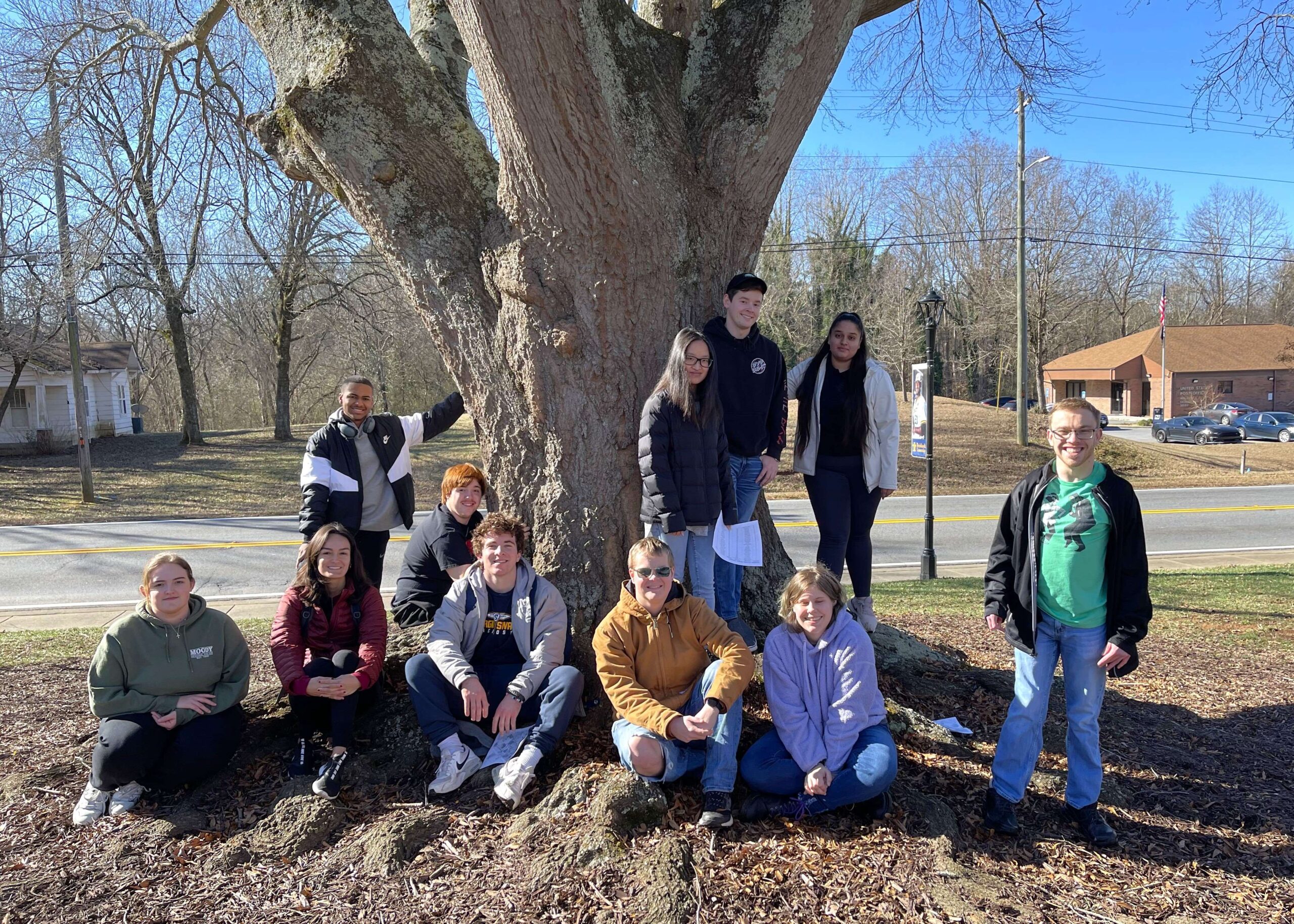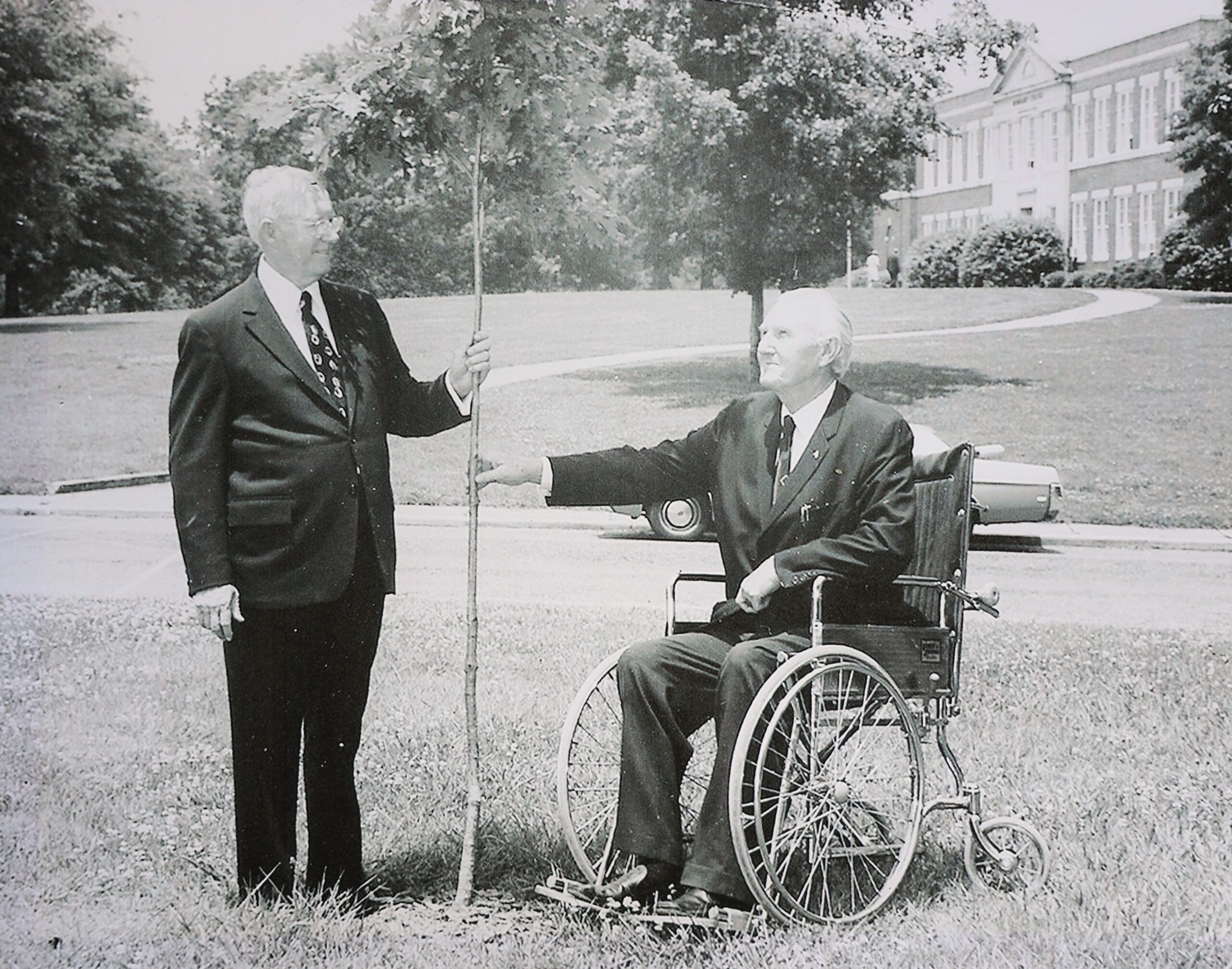
Students in Reinhardt University’s newly piloted Forest Lore class
By: Olivia Fields (RU2027), Student Assistant, Environmental Studies minor
Reinhardt’s Burgess Arboretum will play a central role in the new environmental studies minor under development at the University. Enabled by a planning grant from the National Endowment for the Humanities, entitled Project HERE, the new minor will focus on the ecology and history of local landscapes.
Students in the interdisciplinary program will gain an awareness of the intertwined ecology, history, and culture of the southern Appalachian Mountains, as well as the environmental issues facing North Georgia today.
Dr. Donna Little, Professor of English, is the author of the grant. She is using the Arboretum as a tool for the pilot course, entitled Forest Lore, which launched this semester. Students each select one tree on campus to study for a research paper. They are also collaborating with a Cherokee County Boy Scout troop to develop a visitor’s kiosk with a map that will make walking tours more navigable.
Professor Kylie Stover has enlisted her botany students to study the Arboretum’s collection and explained, “The Arboretum allows for outreach, and we can incorporate it into our education by using this botanical garden in our classes. The Arboretum allows the trees to grow to their full potential so that we can fully see what these trees should look like in the wild.” To increase accessibility for study, she has updated the catalog of the Arboretum’s 1,153 specimens and has put together a four-module course that any professor can use.
The Arboretum, which encompasses the entire main campus, was started by Reinhardt President Dr. James Rowland Burgess, Jr. (1907-1987) in 1951. His vision for Reinhardt was to refine the campus landscape to make it more appealing to potential students. He believed the campus should be an inviting and wholesome environment where students feel comfortable learning and socializing. The project became a life-long passion for Burgess During his 28-year presidency (1944-1973), he planted over 550 trees and 800 shrubs. He marked the varied collection with metal labels and even returned after retirement to continue identifying what he’d planted.
In 2008, Reinhardt horticulturalist Zach White began caring for the Arboretum and continues to this day. With the help of the Cherokee County Master Gardeners, White improved the landscaping and made new labels for the trees. He also created a guidebook and a new map. On October 3, 2009, the Arboretum was dedicated to Dr. Burgess.
At the event, a statement was read, “The Burgess Arboretum at Reinhardt University has been established to preserve and promote the beauty of the Reinhardt campus landscape, and to educate the community about the scientific, aesthetic, and economic values of plants in our environment. The Burgess Arboretum was also established to preserve the legacy of Dr. James Rowland Burgess, Jr. and the horticulture stewardship he demonstrated on the Reinhardt University campus landscape.”
That statement dovetails perfectly with the mission of the environmental studies minor, comprised of five classes combining Humanities and Ecology. In April, Dr. Little’s class will host a guest speaker, author Janisse Ray. Her book Ecology of a Cracker Childhood (Milkweed Editions, 1999) chronicles her childhood in Georgia’s rural forests and the ecology of the vanishing longleaf pine. The visit includes an excursion to the Longleaf Pine Grove on the North Shore of Lake Allatoona and the Staraland Conservation area.

President Burgess (left) with one of the many trees he planted

The National Endowment for the Humanities and Reinhardt University together: Democracy demands wisdom.
Any views, findings, conclusions, or recommendations expressed in this article do not necessarily represent those of the National Endowment for the Humanities.

